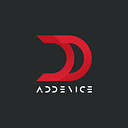Do you know what is the fastest-growing industry in the USA and globally? It’s healthcare! Some 16 % of more occupations are expected between 2020 and 2030. If this is so, technology has a role to play. Technology makes healthcare more accessible, efficient, and effective. As one of the recent innovations in the tech field, IoT, or the Internet of Things has gained particular popularity. Let’s get into some more details: why healthcare technology is becoming so popular, how IoT in healthcare revolutionizes the sector, and what some of the apps and devices are used in the industry.
Why healthcare technology is going so popular
You might remember what Adam Smith has said about supply and demand. He said supply and demand is an “invisible hand” that naturally guides the economy. If this is so, sure there is demand for healthcare technology. But where does this demand come from? Let’s have a look at some factors.
Growing world population
There is a tendency in the world for people to live longer. Hong Kong where people live the longest has a life expectancy of 85.29 years. The population is growing. The world population increased 8 times in the course of 3 centuries. Since older people make up a higher percentage, they are more likely to need healthcare services.
Demand for reduced cost
Technology also reduces costs. Since many processes are automated, healthcare providers are able to reduce resources spent on tasks. Due to this automation, in-person visits are reduced and healthcare has become more accessible.
Innovative solutions
Today, wearable devices in healthcare and various apps are used to monitor patient data in real-time. These innovative solutions have been readily welcomed by patients and doctors.
So, the healthcare industry is a sector where supply and demand meet.
How IoT in Healthcare Will Revolutionize the Healthcare Industry
Now let’s have a look at what role the Internet of Things (IoT) plays. To understand the role IoT plays in healthcare, let’s look at what it does in general. IoT creates interconnected networks between physical devices, for example, vehicles, home appliances, and sensors. To make an IoT app is not something unusual any more. These devices collect and exchange data. What implications does this have on the healthcare industry?
Let’s take the example of remote patient monitoring. Today, the healthcare industry applies wearable devices and sensors that can be used to watch patients’ conditions from a distance. A vast amount of resources is saved meantime! It means less time spent on check-ups as well as fewer doctor visits.
But this has other implications we well. Healthcare IoT devices such as smart pill bottles and wireless sensors enable healthcare providers to gather real-time data resulting in improved accuracy of medical diagnoses. And this can be done regardless of physical location.
Another benefit is predictive analytics. Just think about this. Can a human being analyze vast medical data as IoT devices do? IoT in healthcare and other Artificial Intelligence tools find patterns and trends that can help predict future health outcomes.
In short, the benefits are many. The healthcare industry has to reap the benefits of IoT technology in the coming years.
Healthcare monitoring devices
Wearable technology and healthcare mobile apps have become indispensable in today’s life. They are used for monitoring and health management purposes. For example, they monitor vital signs, physical activity, sleep patterns, etc. Let’s see what types of apps there are in the market and what they actually do.
Patient monitoring apps
These apps monitor patients’ conditions like heart rate, blood pressure, or oxygen intake. They are applied together with sensors and wearable devices. These devices are mainly used by patients with chronic diseases, such as heart or respiratory problems. An example is blood pressure cuffs or glucometers. For oxygen levels, pulse oximeters are used.
Fitness apps
You might have heard about Steps. This app tracks steps taken in a day. Fitness apps monitor physical activity. They can measure the walking or running distance or they can calculate the calories burnt. While most of the features are free of charge, they are also paid services that are more or less personalized. An example is Strava, which is one of the most popular apps in fitness. Not only does it work for runners and cyclists but also swimmers, hikers, and gym trainees.
Sleep monitoring apps
These apps are connected to sensors that monitor a patient’s sleep patterns. Since insomnia is a very popular disturbance for a lot of old-aged people, these apps are very popular. They help to improve sleep quality. Sleep improvement apps include SleepScore and Sleep Cycle but there are hundreds of others in the market.
Mental health monitoring apps
These apps help to manage stress and anxiety. For example, patients learn what triggers their negative emotions and can be more self-aware. They also include mindfulness exercises and guided meditation. There are even apps that help to diagnose mental health. For example, Rapid Diagnosis — Mental Health is an application that helps to diagnose mention, emotional, and psychological problems. The app applies deductive logical analysis and can come up with a probable diagnosis within 2 minutes.
Chronic disease management apps
These apps mainly concern diseases like diabetes, multiple sclerosis, and rheumatoid arthritis. They help to monitor health conditions and provide data to practitioners for better treatment. For example, My Medical Info is a helpful app. The app allows programming in doctors’ appointments and all the medication a patient has to take.
Sum up
The healthcare industry is going through a massive technological revolution. And IoT in healthcare and other AI functions help in the process. Not only do they provide valuable data to practitioners for better treatment but also analyze patterns that would not be possible to do with the human eye and brain. So, what will the future be like? Most probably new healthcare devices and apps will enter the market for continued improvement.
